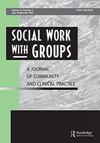印度自助团体形式的社会资本:减少家庭财务脆弱性的强有力的弹性解决方案
引用次数: 0
摘要
由于2019冠状病毒病大流行和经济总体形势,许多家庭现在在经济上很脆弱。这就像一个恶性循环:一旦一个家庭被困住,它就会一直陷在陷阱里,直到或除非它能胜任自己的财务管理。家庭所经历的这些问题引起了人们对社会资本的关注。自助团体(Self-help groups, SHGs)起源于印度,旨在帮助低收入家庭摆脱贫困,现在被认为是一种社会资本,可以定义为一个群体合作提高其所有成员利益的行为。本文旨在通过对其他一些出版物、论文、报纸文章和报告的回顾,解释SHGs如何有助于减少家庭财务脆弱性的各种因素或决定因素。人们发现,shg现在提供的好处远不止是减轻贫困。它们帮助减少了不良贷款或不良资产,减少了对非正式融资来源的依赖,提高了家庭应对COVID-19等危机的韧性,并使家庭能够存钱和准确管理财务。农村家庭要克服经济困难,唯一的办法就是组织自己的家庭。本文章由计算机程序翻译,如有差异,请以英文原文为准。
Social capital in the form of self-help groups in India: a powerful resilient solution to reduce household financial vulnerability
Due to the COVID-19 pandemic and the economy’s general situation, many households are now financially vulnerable. It is like a vicious cycle: once a household is caught, it will remain in the trap until and unless it competently manages its finances. These problems experienced by households have drawn attention to social capital. Self-help groups (SHGs) originated in India to pull out low-income households from poverty and are now recognized as social capital, which can be defined as the action of a group cooperating to enhance all its members’ benefits. This article aims to explain how SHGs have contributed to reducing various factors or determinants of household financial vulnerability through a review of several other publications, theses, newspaper articles, and reports. It was discovered that SHGs now provide much more benefits than just alleviating poverty. They have helped to reduce bad loans or non-performing assets, reduced the dependence on informal sources of finance, made households more resilient toward crises such as COVID-19, and enabled households to save money and manage their finances accurately. Organizing themselves into SHGs is the only way for rural households to overcome financial difficulties.
求助全文
通过发布文献求助,成功后即可免费获取论文全文。
去求助
来源期刊

Social Work with Groups
Social Sciences-Social Sciences (miscellaneous)
CiteScore
1.30
自引率
0.00%
发文量
22
期刊介绍:
Social Work with Groups is a unique quarterly journal of community and clinical practice, and an important reference publication for those in the social work profession who value and seek to understand the small group. The journal addresses the issues of group work in psychiatric, rehabilitative, and multipurpose social work and social service agencies; crisis theory and group work; the use of group programs in clinical and community practice; and basic group competencies for all social work professionals. The contributions reflect a sophisticated knowledge of the use of the group as a learning medium and a highly developed understanding of instructional technology in the teaching of social group work knowledge and skills.
 求助内容:
求助内容: 应助结果提醒方式:
应助结果提醒方式:


